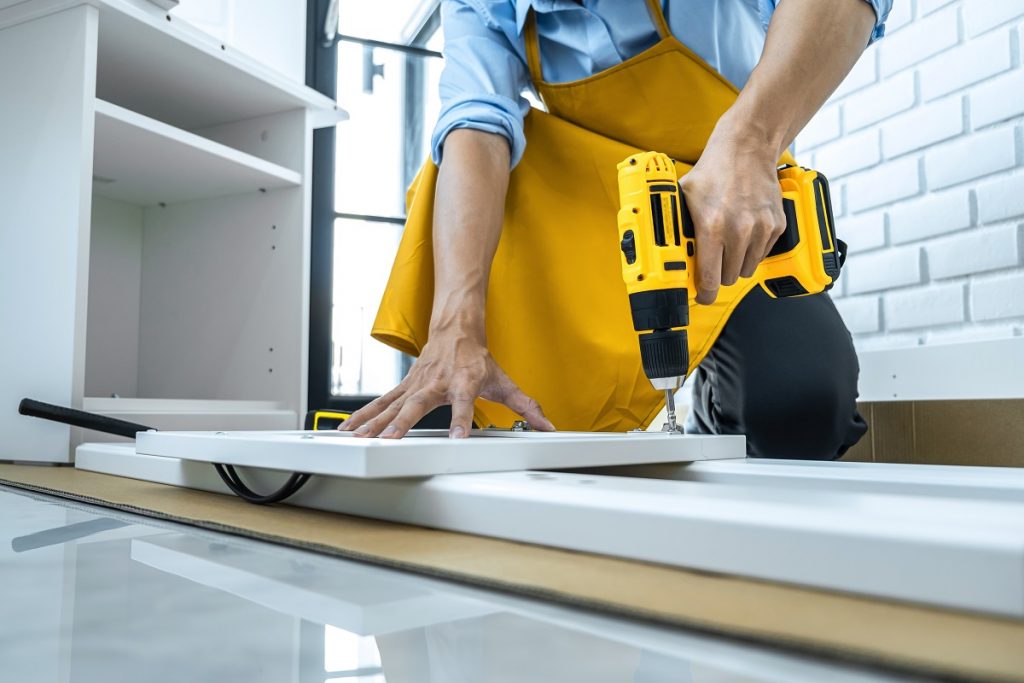- Regular inspections are crucial for identifying and addressing potential home issues early.
- Prioritizing preventive maintenance tasks can prolong the life of your home’s systems and increase its value.
- Keeping an eye on plumbing can prevent costly water damage in the future.
- Investing in energy efficiency can save you money on utility bills.
- Maintaining clean floors with regular deep cleaning helps create a healthy living environment.
Owning a home can be a source of pride and joy, but it also comes with responsibilities. Your home is a significant investment, and maintaining it requires consistent effort. Below are five tips to help you keep your dwelling in the best possible condition, ensuring it remains a comfortable and valuable asset for years.
1. Conduct Regular Inspections
Awareness is your first line of defense against major home issues. Regular inspections can help you catch potential problems early, saving you money and stress in the long run. Walk through your home and examine critical areas, paying close attention to the roof, foundation, and exterior walls.
This proactive approach will allow you to identify minor issues before they escalate. For example, spotting a small leak in the roof early can prevent significant water damage and costly repairs down the line.
Here are some tips on how to conduct regular inspections:
Roof Inspection

Inspecting your roof should be a top priority, as it protects your home from the elements. Grab a ladder and look closer at your roof’s condition. Check for any missing or damaged shingles, cracks in the flashing, or signs of water pooling. Cleaning out gutters and downspouts regularly is essential, as clogs can lead to water damage and roof leaks.
Foundation Inspection
The foundation is the backbone of your home, and any issues with it can lead to significant structural problems. Walk around your home’s perimeter and look for cracks or bulges in the foundation walls. Ensure there are no visible gaps between the foundation and the ground, as this can indicate settling or shifting. If you notice any issues, it’s best to call a professional to assess and repair the damage.
Exterior Wall Inspection
The exterior walls of your home protect the interior from outside elements and also contribute to its overall appearance. Look for cracks, gaps, or holes in the walls that could allow water or pests inside. Check for any signs of rot or decay in wooden walls and trim. Keep an eye out for any areas that may need a fresh coat of paint to maintain the integrity of the walls.
HVAC Inspection
Your home’s heating, ventilation, and air conditioning (HVAC ) system is crucial for maintaining a comfortable and healthy living environment. Regular inspections can help ensure it’s running efficiently and identify potential issues. Check and change air filters regularly to prevent clogs and maintain air quality. Also, inspect the system’s components for any signs of wear or damage, such as rust or leaks.
2. Prioritize Preventive Maintenance
Preventive maintenance tasks are essential to prolong the life of your home’s various systems and components. This involves cleaning gutters, changing HVAC filters, and servicing major appliances regularly. Doing so ensures everything runs efficiently, reducing the likelihood of unexpected breakdowns and expensive replacements.
Furthermore, investing time and resources in preventive measures will enhance your home’s functionality and appearance, ultimately maintaining or even increasing its market value. Regular maintenance shows that you care for your property, which can be a strong selling point if you decide to move.
3. Keep an Eye on Plumbing
Plumbing issues can lead to severe damage if not addressed promptly. Regularly check faucets, toilets, and pipes for leaks or drips. Addressing these small issues immediately can save you from dealing with larger, more expensive problems like water damage and mold later on.
Consistent monitoring and quick action will help maintain the integrity of your plumbing system. If you’re unsure or unable to fix minor plumbing issues, don’t hesitate to call a professional. Investing in expert assistance is always better rather than facing escalating costs due to negligence later.
4. Invest in Energy Efficiency

Improving your home’s energy efficiency is not only good for the environment but also for your wallet. Consider replacing old windows and doors with energy-efficient alternatives and invest in quality insulation to minimize heat loss. These upgrades can significantly reduce utility bills, paying for themselves over time.
Energy-efficient appliances and lighting can contribute to a more sustainable and cost-effective home. By making these strategic investments, you ensure your home is comfortable, environmentally friendly, and economical.
5. Maintain Clean and Healthy Floors
Floors are subject to constant wear and tear; keeping them clean and in good condition is vital for a healthy living environment. Hard surfaces should be swept and mopped regularly, while carpets require vacuuming to remove dust and allergens. However, deep cleaning is necessary for truly pristine floors.
For carpets, professional cleaning services or high-quality carpet cleaners can be invaluable. These devices delve deep into the fibers, removing stubborn stains and embedded dirt that regular vacuuming can’t reach. Investing in or renting a carpet cleaner periodically will help maintain the appearance and longevity of your carpet, providing a cleaner and healthier home for you and your family.
In Closing
Homeowners come with the rewarding but challenging task of maintaining your property. Taking proactive measures, addressing small issues promptly, and investing in quality maintenance tools and services, including carpet cleaners, can make this job much easier. Dedication and attention to detail will make your home a safe, comfortable, and valuable asset for years.

